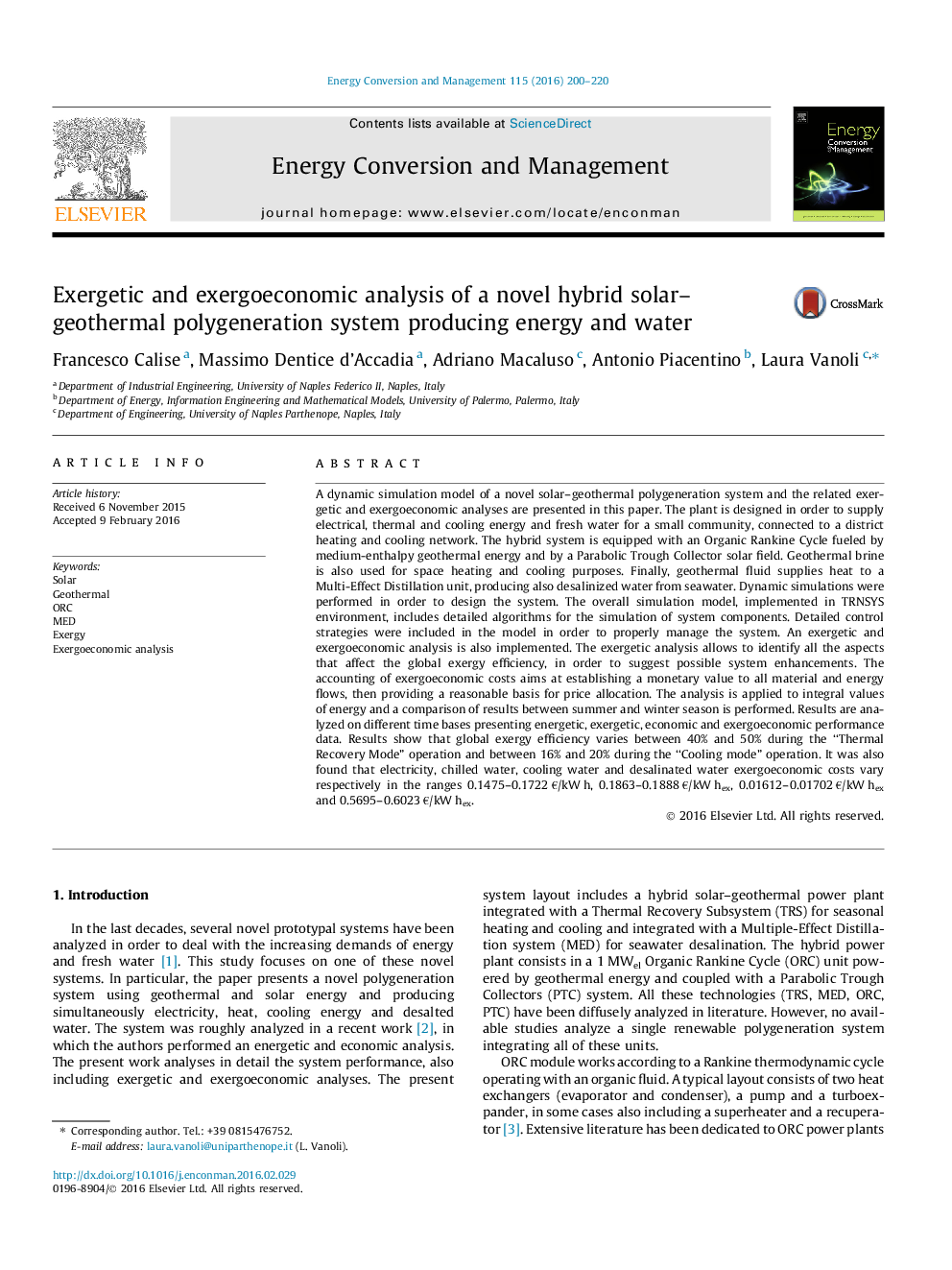| کد مقاله | کد نشریه | سال انتشار | مقاله انگلیسی | نسخه تمام متن |
|---|---|---|---|---|
| 760306 | 1462847 | 2016 | 21 صفحه PDF | دانلود رایگان |

• Exergetic and exergoeconomic analysis of hybrid renewable system is presented.
• The system provides electric, thermal and cooling energy and desalinated water.
• Exergy efficiency varies between 40–50% in the winter and 16–20% in the summer.
• Electricity and fresh water costs vary between 15–17 and 57–60 c€/kW hex.
• Chilled and hot water costs vary between 18.6–18.9 and 1.6–1.7 c€/kW hex.
A dynamic simulation model of a novel solar–geothermal polygeneration system and the related exergetic and exergoeconomic analyses are presented in this paper. The plant is designed in order to supply electrical, thermal and cooling energy and fresh water for a small community, connected to a district heating and cooling network. The hybrid system is equipped with an Organic Rankine Cycle fueled by medium-enthalpy geothermal energy and by a Parabolic Trough Collector solar field. Geothermal brine is also used for space heating and cooling purposes. Finally, geothermal fluid supplies heat to a Multi-Effect Distillation unit, producing also desalinized water from seawater. Dynamic simulations were performed in order to design the system. The overall simulation model, implemented in TRNSYS environment, includes detailed algorithms for the simulation of system components. Detailed control strategies were included in the model in order to properly manage the system. An exergetic and exergoeconomic analysis is also implemented. The exergetic analysis allows to identify all the aspects that affect the global exergy efficiency, in order to suggest possible system enhancements. The accounting of exergoeconomic costs aims at establishing a monetary value to all material and energy flows, then providing a reasonable basis for price allocation. The analysis is applied to integral values of energy and a comparison of results between summer and winter season is performed. Results are analyzed on different time bases presenting energetic, exergetic, economic and exergoeconomic performance data. Results show that global exergy efficiency varies between 40% and 50% during the “Thermal Recovery Mode” operation and between 16% and 20% during the “Cooling mode” operation. It was also found that electricity, chilled water, cooling water and desalinated water exergoeconomic costs vary respectively in the ranges 0.1475–0.1722 €/kW h, 0.1863–0.1888 €/kW hex, 0.01612–0.01702 €/kW hex and 0.5695–0.6023 €/kW hex.
Journal: Energy Conversion and Management - Volume 115, 1 May 2016, Pages 200–220